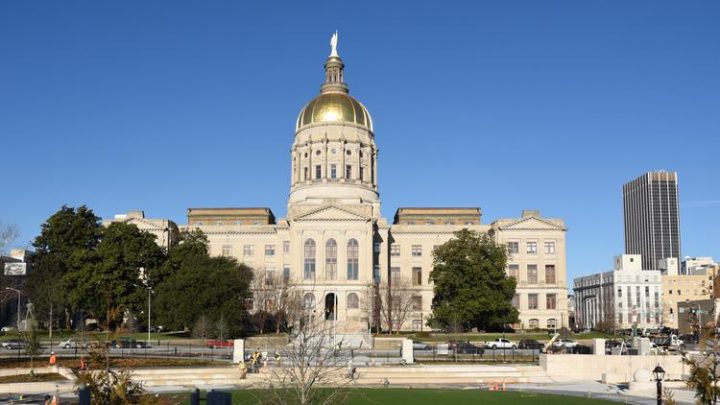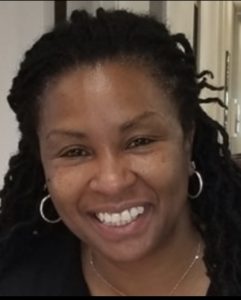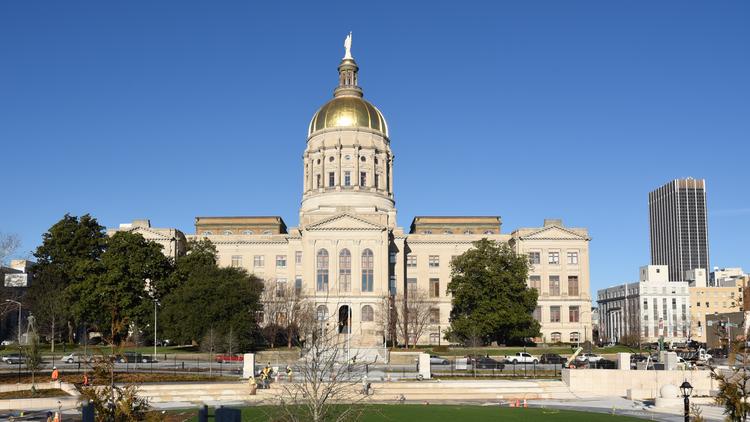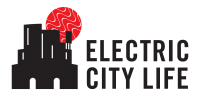
At a time when the pain of life during pandemic brings a spike in suicide and substance abuse, Georgia this month slashed state funding for the mental-health programs that combat “the epidemic within the pandemic.”
From the Georgia Mental Health Consumers Network, Roslyn Hayes and Chris Johnson sound off on the coming consequences of these budget cuts ahead of hosting on Thursday the Mental Health Town Hall, an online rally for a fight coming in the 2021 General Assembly.
What are the impacts related to mental health on society as a whole?
CHRIS: ”Mental health really impacts all aspects of our lives for most families in every community.
Georgia spends less per capita than most any other states, and we have great disparity with rural areas in access to resources and our urban areas. And it impacts not just quality of life, but even life expectancy. People who live with mental-health concerns tend to have a much shorter live expectancy. Something we do know his ow to improve outcomes for folks. We just need funding for it.”
ROSLIND: “Just looking around in our whole today with the COVID crisis and all the things that are resulting form that: the unemployment, the food insecurity, the disparity of impact on people of color, are really being brought to light. We need to have a conversation that allows people to talk about what they’re experienced. Stigma keeps people sick for a while because they fear talking abut it for fear of a negative response. This is about normalizing mental health and removing stigma. Recognizing how normal it is is helpful.”

Statewide Director, Georgia Mental Health Care
Network of Peer Support, Wellness and Support Centers
Why are you hosting the online Mental Health Town Hall this coming Thursday, July 24?
CHRIS: “For the past 28 years, we hav held an annual conference in the summer at St. Simons come together from all over the state and reconnect as a community of mental health advocates. We set the top 5 priorities for the coming legislative session in Georgia with focus on for the net year. Because we have a voice; it ranges from 600 to 1,100 people there. We can’t hold the conference this year because of COVID.
And we’re having it because mental-health supports took a huge hit in our most recent state budget. Our last mover our organization lost 24% of our state funds. It forced us to close a peer support and respite facility in Henry County, which provides an alternative to psychiatric hospitalization. That’s a huge loss. Some organizations took a similar hit as us. Some lost all their funding.
Focused on going into the next state legislative session, which starts in January, and make sure that there are as few cuts as possible to mental-health services. We can’t afford any cuts and make sure our legislations know that.”
Some one would argue that the taxpayer receives better return on the dollar when mental-health services are adequately funded and serving the public need.
ROSLIND: “I would agree with that. The network GMHCN provides for peer support—and we’re able to provide excellent support—is at a a lesser cost than the state. Peer support is called by some the future of mental-health treatment. And with out that support in place, we’re going to see homelessness increase, we’re going to see crime increase, That will weigh heavily on the state budget. With everything that’s going on in the world with COVID, when everything you see on a global level, the needs are greater than ever. It was very shortsighted to make these cuts and it will definitely will cost taxpayers more in the long run.”

Director of Communications,
Georgia Mental Health Consumers Network
What have you seen as far as direct effects of the pandemic’s economic shutdown and social isolation on mental health?
CHRIS: “Since mid-March, we have seen more first-time callers to our peer support hotline. People have grown to rely on it as a daily source for recovery support.
Everyone is disconnected from things that give that social support. No Wednesday night spaghetti suppers, gatherings so typical across Georgia. We think about things like 12-Step Group meetings, but some people rely on being able to play tennis or meet with their bridge group or their knitting club. Those things for the most part are gone.”
Considering the work y’all did here in Columbus last year, what’s your impression of the quality of treatment and support for mental health in our community?
CHRIS: “We were in Columbus for a session on our peer-mentor training that we developed that provides support for people with mental-health and substance-abuse concerns returning to their communities. From incarceration, lots of barriers to recovering wellness.
We learned a lot of in Columbus people really passionate about making their community better. Lots of law enforcement there, and lots of families there, and community members. People hopeful they can make a change and improve access to support in Columbus.
There’s lots of different barriers across communities but one thing we hear everywhere is transportation. If you have great resources, but if people can’t get to them, how helpful are they?’”
* 800,000 Georgians in recovery from substance abuse
* $900,000 Georgia taxpayer savings through respite stays versus state hospitals
* 15,000 Individuals participating in Georgia Mental Heath Consumers network
daily activities in 2019
Is there any magic bullet to solving the issues stemming for poor mental health in Georgia?
CHRIS: “I don’t think there’s a magic bullet. But when we look at the national models, we do know funding helps. Having quality supports and resources in place make all the difference. We have to look at it like investing in schools, or investing in roads. Passion isn’t enough. Teachers need chalk. It takes an investment if you want good outcomes.
We are cutting beds at a time when overdose deaths are increasing—there’s an epidemic within the pandemic. From our perspective, it’s pretty shortsighted for the wellbeing and the economy of Georgia.”
ROSLIND: “Really, mobilize local communities to advocate and to speak up about what’s important. And to speak with local government officials and legislators to let them know what’s important, Have their voices hears and let them know what they will vote for.”
What would be your advice to a person out there suddenly finding themselves in a tough spot and decides to seek help?
CHRIS: “There is always a path forward. There’s always a way to find hope and get connected today to people who will support you on your path to wellness, whatever that looks like. We have the Peer-to-Peer Warm Line open 24/7 and there’s the Georgia Crisis Access Line—(800) 715-4245—that can help people get connected to resources. Picking up the phone for the first time is the biggest challenge.
ROSLIND: “To recognize and understand that they are not alone. There is hope out there. The Peer-to-Peer Warm Line number is (888) 945-1414. We’re here. If people just take the step to reach out and they will find they are not along and there is support.”

